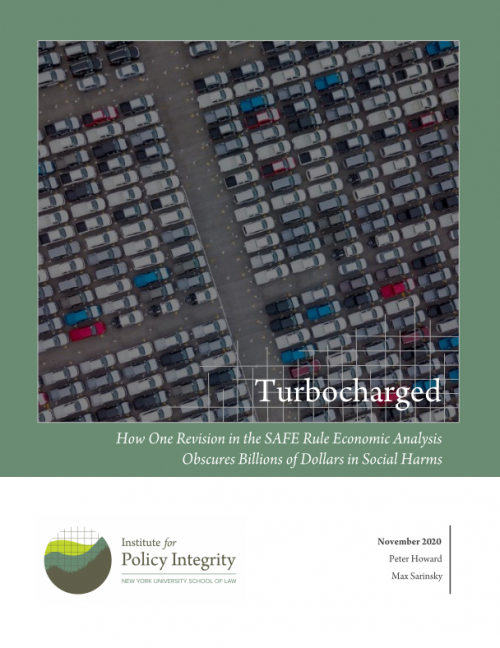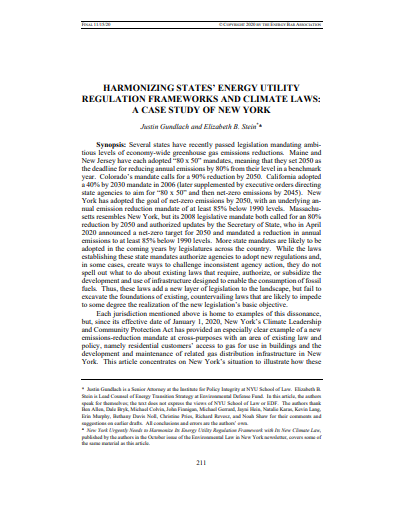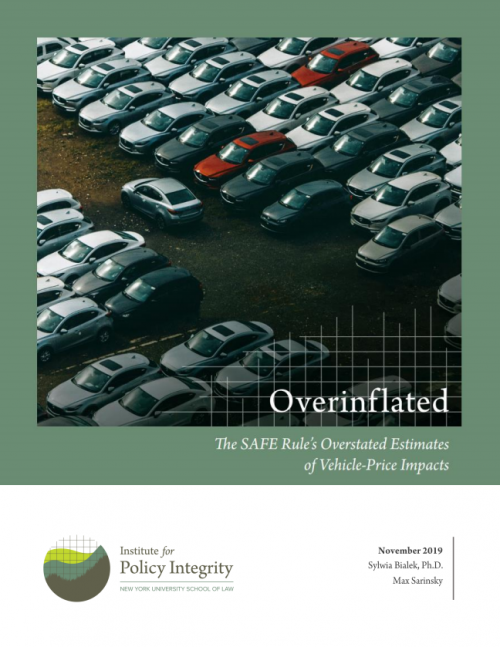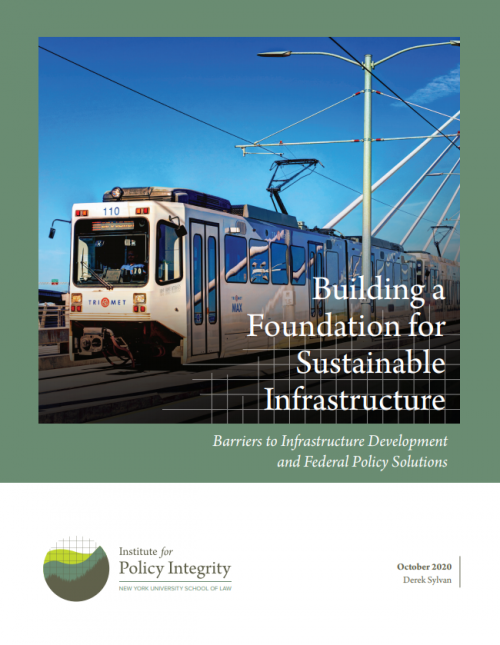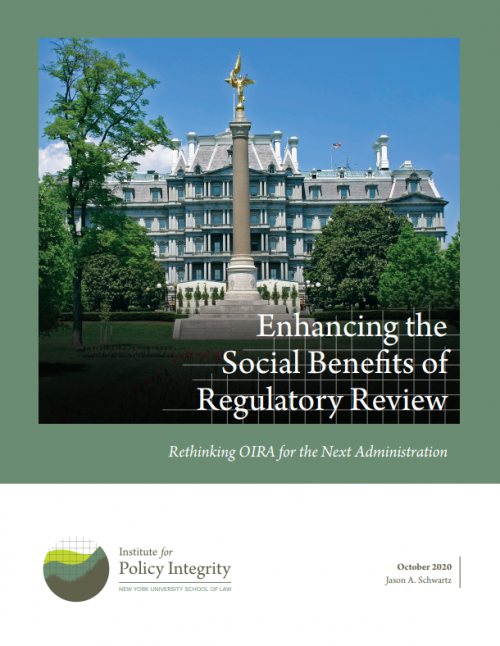The Institute for Policy Integrity produces a variety of publications. Our research reports develop in-depth research on our core issues, while our policy briefs and issue briefs provide focused analysis on more timely or particular topics. Our academic articles and working papers offer original scholarly research and analysis from established experts as well as fresh new voices.
Latest Publications
-
Turbocharged
How One Revision in the SAFE Rule Economic Analysis Obscures Billions of Dollars in Social Harms
This report is part of a series that documents how the assumptions underlying The Safer Affordable Fuel Efficient (SAFE) Vehicles Final Rule for Model Years 2021–2026 Passenger Cars and Light Trucks are skewed to make the rule look less harmful than it actually is. In this report, we focus on the rule’s estimate of vehicle sale price elasticity, which substantially inflates the rollback’s effect on new vehicle purchases.
-
Harmonizing States’ Energy Utility Regulation Frameworks and Climate Laws
A Case Study of New York
Unless the institutional framework and laws pertaining to fossil fuels are modified appropriately, decarbonization efforts will likely be stymied by confusion and related opportunities for opposition. This article, published in the Energy Law Journal, aims to start a wider conversation about the process of conforming existing energy law with novel, climate-oriented legislation. We concentrate on New York’s situation to illustrate how these tensions can manifest and what might be done to address them.
-
Overinflated
The SAFE Rule’s Overstated Estimates of Vehicle-Price Impacts
This report is part of a series that documents how the assumptions underlying The Safer Affordable Fuel Efficient (SAFE) Vehicles Final Rule for Model Years 2021–2026 Passenger Cars and Light Trucks are skewed to make the rule look less harmful than it actually is. In the SAFE Rule, the Environmental Protection Agency and the National Highway Traffic Safety Administration have significantly rolled back the greenhouse gas emission and fuel economy standards for light vehicles established under the Obama Administration. This report highlights three critical problems in the agencies’ assumptions about vehicle prices.
-
Building a Foundation for Sustainable Infrastructure
Barriers to Infrastructure Development and Federal Policy Solutions
Most categories of American infrastructure—from transportation and water systems to public school buildings and electricity meters—are in dire need of modernization, and climate change is compounding this challenge. Our report provides policy recommendations at each stage of the infrastructure lifecycle, from project planning and analysis, through financing, construction, and maintenance. We explain how a realigned approach to infrastructure can boost the economy while addressing threats from climate change and prioritizing social equity goals.
-
Enhancing the Social Benefits of Regulatory Review
Rethinking OIRA for the Next Administration
In recent years, federal leadership has distorted the practice of regulatory analysis and has eroded the integrity of the government’s regulatory review structure as coordinated by the Office of Information and Regulatory Affairs (OIRA). The result has been a torrent of deregulatory actions that have worked against the best interests of the American people and their health, safety, environment, and financial well-being. Our report details the path forward on regulatory review, which is to first surgically excise recent distortions, and then to reaffirm the best principles and practices from the past, while adding key corrections and enhancements. Implementing the reforms recommended in this report will refocus OIRA on helping agencies once again use regulations to maximize net social welfare.

